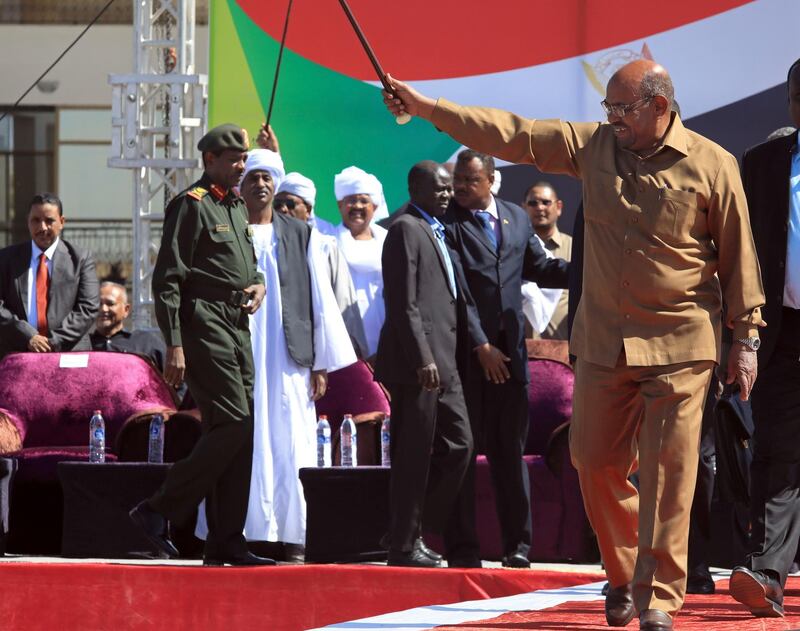During a 29-year reign that has seen the Sudanese president preside over devastating wars, economic ruin and the secession of the south, Omar Al Bashir has also achieved the dubious distinction of becoming the first sitting head of state to be indicted for genocide.
Throughout it all, the 75-year old former military leader has insisted that he is a force for stability in Sudan. Now as the longest protests of his rule demand he step down, his single-minded focus on clinging to power suggests he may only be removed in the same way he came in – by force.
Mr Al Bashir was born in 1944 to a family farming near the banks of the Nile in Hosh Bannaga. The family left the agrarian village when he was young, travelling 200 kilometres south to settle in the capital, Khartoum.
He joined the the army at 16, studying at a military college in Cairo before fighting with the Egyptian military in the 1973 October war against Israel.
Mr Al Bashir served as the Sudanese military attache in the UAE in 1975. Returning home, he rose through the ranks to play a leading role in fighting against South Sudanese rebels.
In 1989, he led the bloodless coup that overthrew the elected government. At a rally afterwards, brandishing a Quran and a Kalashnikov rifle, he swore that “anyone who betrays the nation does not deserve the honour of living”.
Supported by hardliner Hasan Al Turabi, he increasingly Islamised the country, which deepened division with the Christian south. The new military government outlawed political parties and carried out a purge, imprisoning and executing opponents.
After he appointed himself president in 1993, Mr Al Bashir assumed all executive and legislative powers. He also embraced the image of an ultra-conservative leader, harbouring former Al Qaeda leader Osama bin Laden in 1991, which led to the US listing Sudan as a state sponsor of terror.
The stick-wielding Mr Al Bashir, who still favours military uniforms when not wearing a white turban and robe, has been re-elected three times in suspect ballots. No candidate stood against him in 1996 and in 2000 he was re-elected after ousting former ally Turabi in a palace coup a year earlier. Elections in 2010 were marred by vote rigging, corruption and intimidation.
_______________
Read more:
[ Sudan's professionals lead calls for Omar Al Bashir to step down ]
Sudan's doctors say they are state targets in anti-Bashir protests
[ Sudan women join protests to fight for their rights ]
_______________
A transitional government from 2005 to 2010 brought an end to the civil war with the south but from 2003 a new civil war began in Darfur. To quell the uprising, Mr Al Bashir enlisted Arab Janjaweed militiamen, who carried out widespread atrocities against civilians. In 2009, the International Criminal Court issued an arrest warrant for Mr Al Bashir for war crimes and crimes against humanity in Darfur.
Secession of the south in 2011 led to the loss of three quarters of Sudan’s oil revenue. This along with corruption and economic mismanagement led to the unrest behind current protests, which began in December following bread price hikes.
As with previous short-lived protests in 2011 and 2014, Mr Al Bashir has refused calls to step down, saying he will only leave if voted out of office in 2020.






